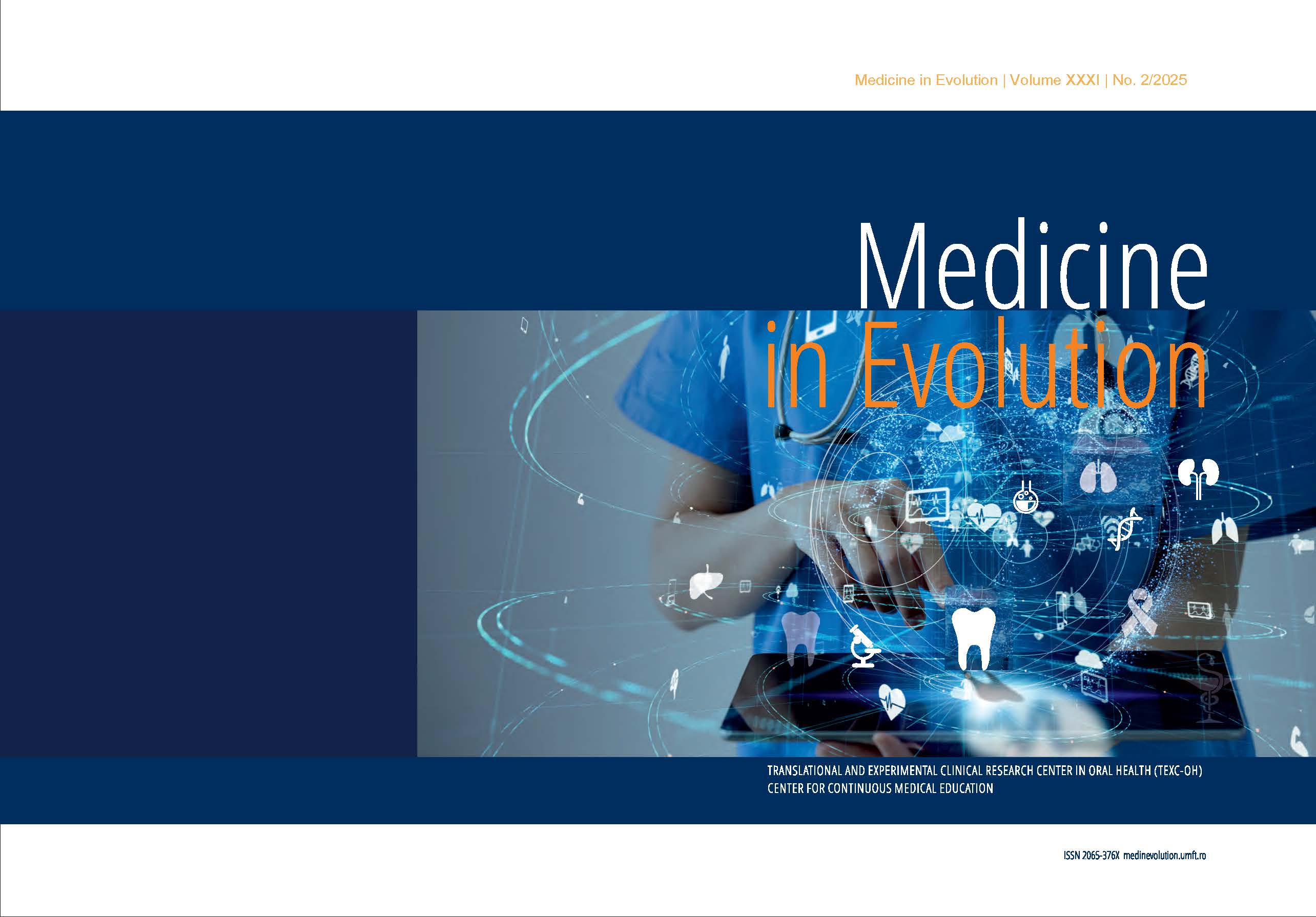Octavia Balean
Translational and Experimental Clinical Research Centre in Oral Health, Department of Preventive, Community Dentistry and Oral Health, “Victor Babeș” University of Medicine and Pharmacy, Eftimie Murgu Sq. No. 2, 300041 Timisoara, Romania Clinic of Preventive, Community Dentistry and Oral Health, Department I, “Victor Babeș” University of Medicine and Pharmacy, Eftimie Murgu Sq. No. 2, 300041 Timisoara, Romania
Ramona Dumitrescu
Translational and Experimental Clinical Research Centre in Oral Health, Department of Preventive, Community Dentistry and Oral Health, “Victor Babeș” University of Medicine and Pharmacy, Eftimie Murgu Sq. No. 2, 300041 Timisoara, Romania Clinic of Preventive, Community Dentistry and Oral Health, Department I, “Victor Babeș” University of Medicine and Pharmacy, Eftimie Murgu Sq. No. 2, 300041 Timisoara, Romania
Atena Galuscan
Translational and Experimental Clinical Research Centre in Oral Health, Department of Preventive, Community Dentistry and Oral Health, “Victor Babeș” University of Medicine and Pharmacy, Eftimie Murgu Sq. No. 2, 300041 Timisoara, Romania Clinic of Preventive, Community Dentistry and Oral Health, Department I, “Victor Babeș” University of Medicine and Pharmacy, Eftimie Murgu Sq. No. 2, 300041 Timisoara, Romania
Vanessa Bolchis
Translational and Experimental Clinical Research Centre in Oral Health, Department of Preventive, Community Dentistry and Oral Health, “Victor Babeș” University of Medicine and Pharmacy, Eftimie Murgu Sq. No. 2, 300041 Timisoara, Romania Clinic of Preventive, Community Dentistry and Oral Health, Department I, “Victor Babeș” University of Medicine and Pharmacy, Eftimie Murgu Sq. No. 2, 300041 Timisoara, Romania
Vlad Tiberiu Alexa
Translational and Experimental Clinical Research Centre in Oral Health, Department of Preventive, Community Dentistry and Oral Health, “Victor Babeș” University of Medicine and Pharmacy, Eftimie Murgu Sq. No. 2, 300041 Timisoara, Romania Clinic of Preventive, Community Dentistry and Oral Health, Department I, “Victor Babeș” University of Medicine and Pharmacy, Eftimie Murgu Sq. No. 2, 300041 Timisoara, Romania
Delia Abrudan Luca
Translational and Experimental Clinical Research Centre in Oral Health, Department of Preventive, Community Dentistry and Oral Health, “Victor Babeș” University of Medicine and Pharmacy, Eftimie Murgu Sq. No. 2, 300041 Timisoara, Romania Clinic of Preventive, Community Dentistry and Oral Health, Department I, “Victor Babeș” University of Medicine and Pharmacy, Eftimie Murgu Sq. No. 2, 300041 Timisoara, Romania
Lucian Floare
Translational and Experimental Clinical Research Centre in Oral Health, Department of Preventive, Community Dentistry and Oral Health, “Victor Babeș” University of Medicine and Pharmacy, Eftimie Murgu Sq. No. 2, 300041 Timisoara, Romania Clinic of Preventive, Community Dentistry and Oral Health, Department I, “Victor Babeș” University of Medicine and Pharmacy, Eftimie Murgu Sq. No. 2, 300041 Timisoara, Romania
Doina Chioran
Department of Anesthesiology and Oral Surgery, “Victor Babeș” University of Medicine and Pharmacy, Eftimie Murgu Sq. No. 2, 300041 Timisoara, Romania
Abstract
Background: Human papillomavirus (HPV) is a leading etiological agent of various malignancies, including cervical and oropharyngeal cancers. Despite the availability of safe and effective prophylactic vaccines, vaccination uptake remains suboptimal in several regions, including Romania. Dental students, as future oral healthcare providers, are uniquely positioned to contribute to HPV-related cancer prevention. Objective: This study aimed to evaluate HPV vaccination status, awareness, and behavioral intentions among dental students enrolled at the “Victor Babeș” University of Medicine and Pharmacy in Timișoara, Romania. It also sought to identify factors associated with actual vaccine uptake and intention to vaccinate. Methods: A cross-sectional analytical study was conducted in April–May 2025 using a structured questionnaire administered to second-, fifth-, and sixth-year dental students. Variables analyzed included demographic data, HPV vaccination status, awareness of vaccine safety and efficacy, understanding of community-level protection, and declared intent to vaccinate. Descriptive statistics, correlation analysis, and logistic regression were employed for data interpretation. Results: Out of 199 participants, only 25% reported being vaccinated against HPV, despite high levels of awareness—over 85% acknowledged vaccine safety and effectiveness, and 78% recognized its role in reducing community transmission. Among the unvaccinated students, more than 60% expressed an intention to receive the vaccine. However, the logistic regression model did not yield significant predictors due to limited variability in awareness-related responses, indicating a well-informed but behaviorally inconsistent cohort. Conclusions: Romanian dental students exhibit strong theoretical knowledge of HPV-related health risks and vaccination benefits, yet vaccination uptake remains low. The high intention to vaccinate among unvaccinated individuals suggests a readiness that could be harnessed through targeted behavioral interventions. These findings highlight the importance of integrating both educational and motivational strategies into dental curricula to transform knowledge into preventive action.

